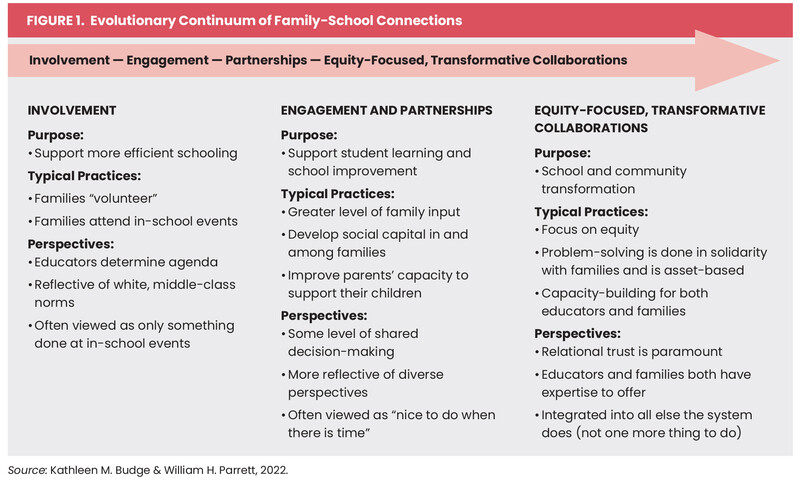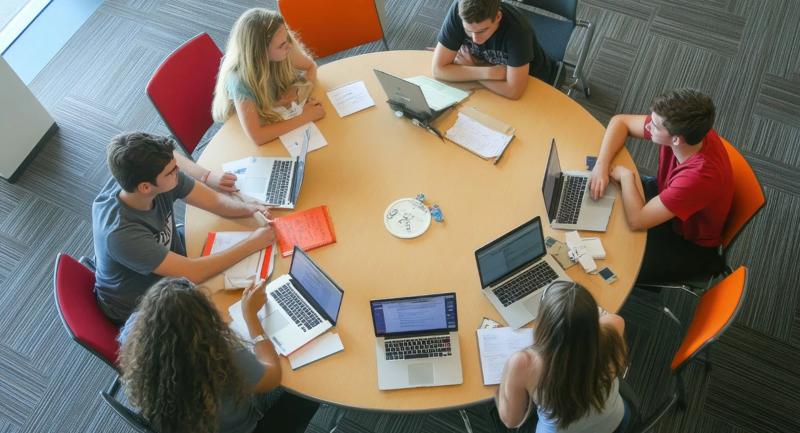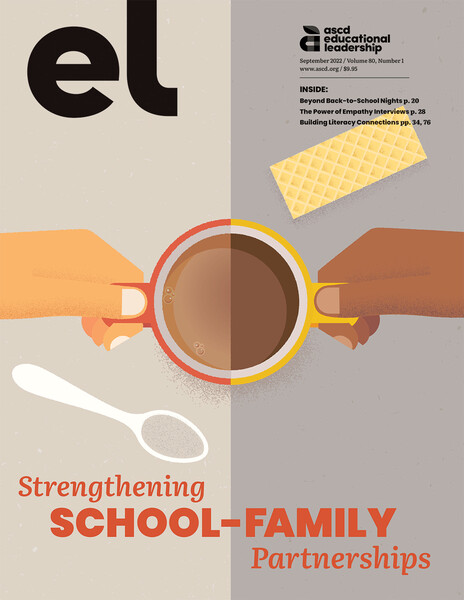In our studies of high-poverty schools that "beat the odds" and became high achieving, we have found that in each case, school leaders recognized family engagement as an important priority for school leaders. However, it was not usually among the factors they viewed as most influential in their school's success. This prompted us to wonder how family engagement, especially for families who have historically not been served well by schools, could become a more powerful, integral aspect of school-improvement initiatives.
In recent years, a handful of scholars, including Karen Mapp, Eyal Bergman, and Soo Hong, have called for collaborative relationships between educators, families, and community-based leaders aimed at transforming schools into more equitable and developmentally supportive enterprises. Based on our experience working in high-poverty, racially diverse schools, this research represents a large but hopeful leap in theory and practice. Despite the many benefits of family engagement, the barriers to systemic change can be significant.
To guide schools in overcoming these barriers, we created a continuum—based on research in the field and our own work in schools—that illustrates the hoped-for evolution in school family engagement models (Figure 1) and suggests ways schools can question their practices to evolve toward true engagement.
Questioning Your Status Quo
Schools can use this continuum to evaluate their current purposes, practices, and perspectives on family engagement initiatives in comparison to the ideals inherent in equity-focused, transformative collaborations. Here are some tips for doing this work.
The purposes of equity-focused, transformative collaborations are to challenge current paradigms of family engagement and, ultimately, foster more just schools (Ishimaru, 2020).
Questions to Appraise Purposes in Your School:
What is the range of beliefs educators hold about the purpose(s) of our school's current family engagement practices?
What is the range of beliefs families hold about the purpose(s) of our school's current family engagement practices?
Are our current identified purposes for engaging families intended to make schooling more equitable or to transform it in any way?
The practice of equity-focused, transformative collaborations with families necessitates a co-constructed model, a rejection of deficit-based perspectives and asset-based approaches, inclusion of culturally responsive interactions, development of relational trust, and integration into school improvement initiatives and alignment with student learning goals (Ishimaru, 2020; Mapp & Bergman, 2021).
Questions to Appraise Practice(s) in Your School:
Who benefits from our current family engagement practices and who does not?
How, if at all, are our current family engagement practices informed by the priorities, interests, concerns, assets, knowledge, and resources of the families and community we serve?
How, if at all, do our current family engagement practices develop reciprocity between educators and families?
How, if at all, do our current family engagement practices engage us in collaborative inquiry with families to address problems of mutual concern?
What about attending to perspectives in using equity-focused, transformative collaborations? To build such partnerships, educators will likely need to examine their own mental models. That includes their assumptions about disadvantaged or minority families; notions of expertise (e.g., who has it and who does not); perspectives about collectively addressing problems with families; and beliefs about their role as an educator (Ishimaru, 2020; Mapp & Bergman, 2021).
Questions to Appraise Perspectives in Your School:
What is the range of viewpoints on the role educators should play in family engagement?
What is the range of beliefs held by educators about the role families should play in the education of their children at school?
What is the range of beliefs about disadvantaged or minority families' ability and willingness to engage in their child's learning?
How, if at all, do our current family engagement practices build relational trust between educators and families?
The need for equity-focused family engagement has become more critical in light of the many inequities laid bare by the pandemic. The well-documented evolution of theory and practice in this field offers schools opportunities to evaluate current family engagement initiatives, with the aim of moving toward bolder support of students.








